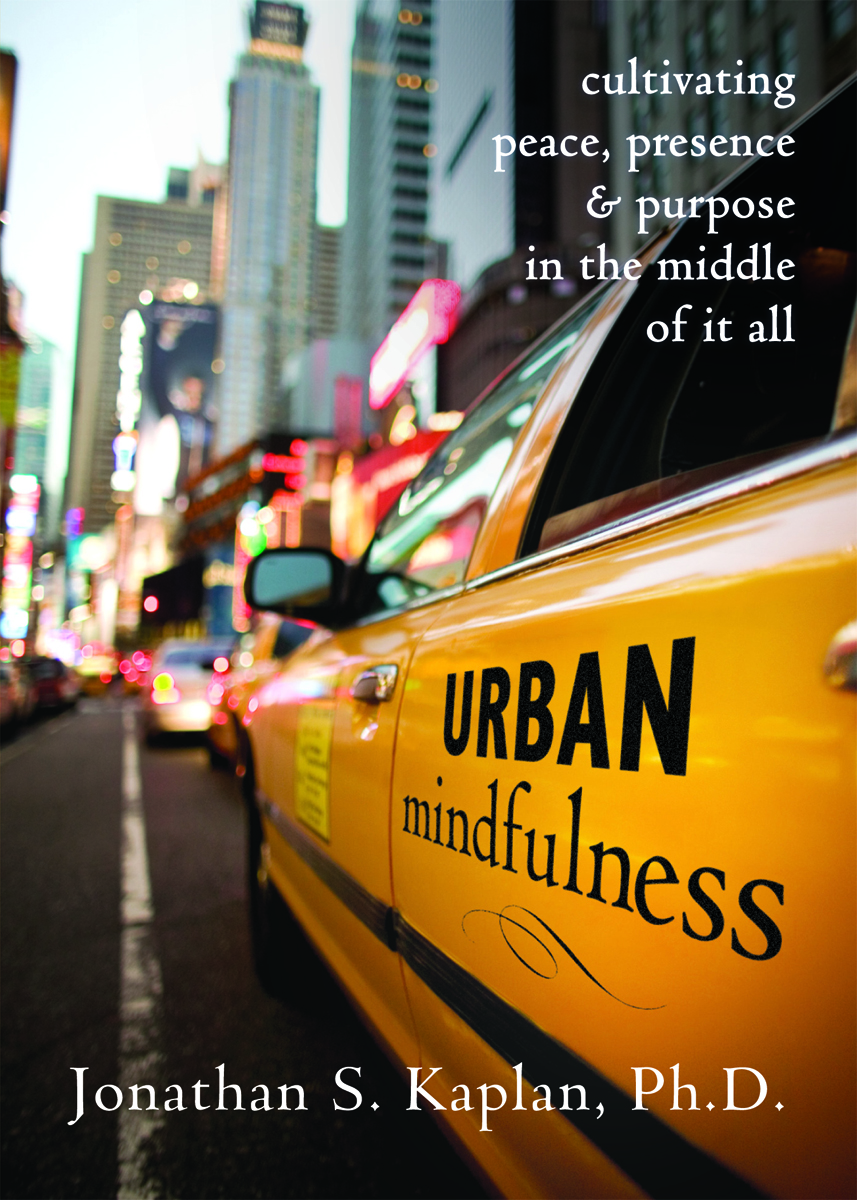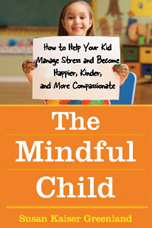By Jonathan Kaplan, Ph.D.

Recently, I had the distinct privilege of sitting down with
Sharon Salzberg, one of the pioneers in introducing Buddhist practices to the West. Based on her experiences of teaching mindfulness and compassion (i.e., loving-kindness) around the world, I invited her to comment on introducing these practices to many of our common urban experiences. Personally, it was delightful and enlightening to meet with her, and I am very grateful for her insights and support. Over the past 10 years, I have often relied on her teachings for my own spiritual and personal growth.
For more information on Sharon--
including her talks in Brooklyn and Manhattan this week!--please check out the details at the end of the interview.
Congestion and AggravationJon: Thanks so much for meeting with me today. In the city, we encounter many unique difficulties and challenges to mindfulness practice. Given your expertise and teachings on loving-kindness, I wonder about your reflections of being in some of these situations. For example, it’s easy to get annoyed and frustrated by the congestion we experience, like when we’re riding a crowded subway train. In such circumstances, how can we practice compassion?
Sharon: Well, part of it is having compassion for ourselves and realizing that we're living like a sponge: we're just absorbing all of the difficulty and annoyance and irritants. Eventually, it will fill us and take over our consciousness. Alternatively, we can experience it genuinely, but with a lot more spaciousness by not taking these things to heart. Practicing compassion for oneself is being able to be fluid in these situations. You can feel the annoyance like a storm moving through you and just let it go. Motivated by curiosity and a sense of our own well-being, we also can decide that we’re going to experiment with a new way of engaging people. Today, I was riding an elevator and someone had a rambunctious dog. At every floor, the elevator stopped and more people got on, until it was very crowded. As more people came into the elevator, I could conduct an experiment. I could ask, “Am I going to relate to these people in a friendly manner or am I going to glare at them with an ‘It's crowded enough in here!’ stare?” We tell ourselves that we’re going to smile at the people in the elevator, ask the cab driver where he's from, whatever it might be. It changes the day.
Noisy NeighborsJon: Sometimes, we can get to the point of personalizing our anger or annoyance, like with a noisy neighbor or intractable people on the co-op board. How do you suggest that we approach these situations, in which we’ve personified our inability to have our desires met?
Sharon: In Tibetan Buddhism, they say that anger is the thing that we pick-up when we feel weak because we think it's going to make us feel strong. So, another aspect of this situation classically, is to investigate whether or not it really makes us feel strong. If so, how long does that last? We use mindfulness to look at the annoyance or anger and see whether or not this will really help me get what I want. Perhaps, there are more skillful ways of communicating in order to get our needs met. Some people think that if you're practicing mindfulness, then you're passive and don't object to the noisy neighbor or unjust treatment. But it does not mean that either. But hopefully, you come from a different place when you take action.
“That’s mine!” mentalityJon: In the city, there can be a lot of emphasis on competition and possessiveness. We lay claim to things like taxis and parking spaces, which don’t
really belong to us. How can we get better in touch with living together peacefully?
Sharon: Often, it’s just a question of beginning with mindfulness of how things actually feel. How does it feel to have a competitive mindset, even when you’re not in competition with anybody? Sometimes, I get off the elevator and look down the lane of apartment doors in my building, and think, “Oh my God, I hope that no one smokes in bed anymore.” Wouldn’t it be tragic if someone fell asleep and I burned to death? How horrible is that? I could walk in here, oblivious to everyone else on the floor. It doesn’t have to be a fearful thought, but a recognition that we’re counting on each other. We’re interdependent. I’m not going to have a very good year if you fall asleep smoking. It’s not sentimental—it’s just how things are.
END OF PART ONE—MORE COMING SOON!Brief Biography Sharon Salzberg is cofounder of the Insight Meditation Society (IMS) in Barre, Massachusetts. She has been a student of Buddhism since 1971, guiding meditation retreats worldwide since 1974. Sharon's latest book is
The Kindness Handbook, published by Sounds True. She is also the author of
The Force of Kindness, published by Sounds True;
Faith: Trusting Your Own Deepest Experience, published by Riverhead Books; and
Lovingkindness: The Revolutionary Art of Happiness, published by Shambhala Publications. For more information about Sharon, please visit:
http://www.SharonSalzberg.com.
Upcoming Workshops in New York CityWednesday, May 5, 2010, 8 pm - 10 pm
Meditation Workshop: Tools for Awakening Courage, Faith, and Compassion
Jaya Yoga Center, 1626 8th Avenue, Brooklyn, NY
Call 718-788-8788
www.jayayogacenter.com/workshops Saturday, May 8, 2010, 1 pm - 4 pm
TRANSFORMATIVE JOY: Finding Joy on the Path
Yoga Works, Union Square, 138 Fifth Avenue (4th floor) New York, NY
Call 212-647-9642
http://www.yogaworks.com/our_programs/find_a_workshop.aspx
 Friday, February 3, 2012 at 10:56AM
Friday, February 3, 2012 at 10:56AM 




